5 Things I Learned About Nutrition While Recovering From an Eating Disorder
And how you can use them to strengthen your long-distance running journey
By Rebecca Wied
For the past 10 years, my world has been consumed by the thoughts of numbers, food, and exercise; and my time has been filled up with doctor appointments, therapy, and treatment stays. At the age of 13, I was diagnosed with anorexia nervosa and my life has never been the same since. Running, something that brings me true joy and is an escape for my body and mind, has been taken away from me far too many times. My most recent relapse landed me in the hospital for dehydration, malnutrition, and cardiac problems, and then residential treatment in Utah for 13 months. While being fed through an NG tube, I was told there was a possibility I would not even make it, not to mention the countless doctors, therapists, and dietitians over the years that have told me that I was a lost cause and could not work with me. Now, 3 years later, I am proving all of those people wrong, and the biggest motivator for me and my recovery is running.
This year, 2022, has been a big year for me in terms of running. I have ran a PR in all distances: 5k, 10k, half, and full marathon, and even completed (and PR’ed) my first Ironman 70.3. Ultimately, I credit a lot of my success this year from properly fueling myself and my training, and these are my top 5 takeaways:
1. Your Body Cannot Run on Empty
For the longest time, I thought I was invincible and the exception to the rule that food is essential for your body to be able to do physical activity, let alone live. Over the past few years I have learned that I am not the exception, and also that no one else is either. I love the saying “Food is Fuel”, especially in eating disorder recovery, as this helps me see food as a positive thing and something that enables me to do the thing I love the most – run. As runners, we need even more food, or energy, then others, and this is something we should prioritize. We must prioritize nutrition to ensure we can continue to push our bodies past the normal limit.
This also includes rest days and during runs! Rest days are for our bodies to recover from the previous days of training and to prepare for the long training days ahead, and an essential aspect of recovery and repair is nutrition. So, even though you might not be exerting your body in the same way you usually do, you should not restrict your intake on rest days. Nutrition during runs, especially long runs, is another important aspect to remember and incorporate to one’s training plan. Simply put, your body cannot run on empty.
2. Carbs are not to be Feared
With one of the biggest diets on the market currently being Keto and Low-Carb Diets, it is easy to fall into the diet culture trap that our society is wrapped up in that demonizes carbs. But, as athletes, carbs are our main source of fuel. Carbohydrates are the easiest and fastest nutrient that our body can break down to use as energy, so if we are not supplying ourselves with the proper amount of carbs, our bodies are going to turn to other sources to get energy from, which would be proteins and fat, and ultimately our own muscles. Running and endurance training already puts our bodies through a lot of stress, so by ensuring you are giving your body the proper fuel and carbs, you ensure you stay out of starvation mode, and keep added extra stress away from your body.
3. Post-Run Nutrition is Essential
30 minutes to 1 hour after a workout is a time frame every athlete should remember. This is the time frame when you should be eating or drinking something with protein and carbs to ensure proper recovery and repair of muscles. Post-Workout nutrition is when protein comes into play, and is now the main macronutrient you should be focusing on. My favorite post-run fuel is chocolate milk!
4. Hydration is Key
Just as important as food, hydration should not be forgotten or put on the back burner. Not properly hydrating hinders performance and stresses the body. During training sessions, sweat is inevitable, even in the cold, and when our bodies sweat we lose not just water, but essential nutrients called electrolytes. After workouts, water and electrolytes need to be replaced, not just one or the other!
5. All Foods Fit
All foods fit! This is important to emphasize, because as runners, or athletes, it is often assumed we must only eat a healthy and whole food diet; and while that is important, restricting your body of other “fun” foods is even more harmful. Let the mindset go that eating dessert will impact your performance in a negative way, because that is far from the truth. Fueling your body well, giving your body all the foods, and living your life to the fullest is what will prepare you for success in running and in life. Even if that means going out for a drink or dessert!
Happy Running!


